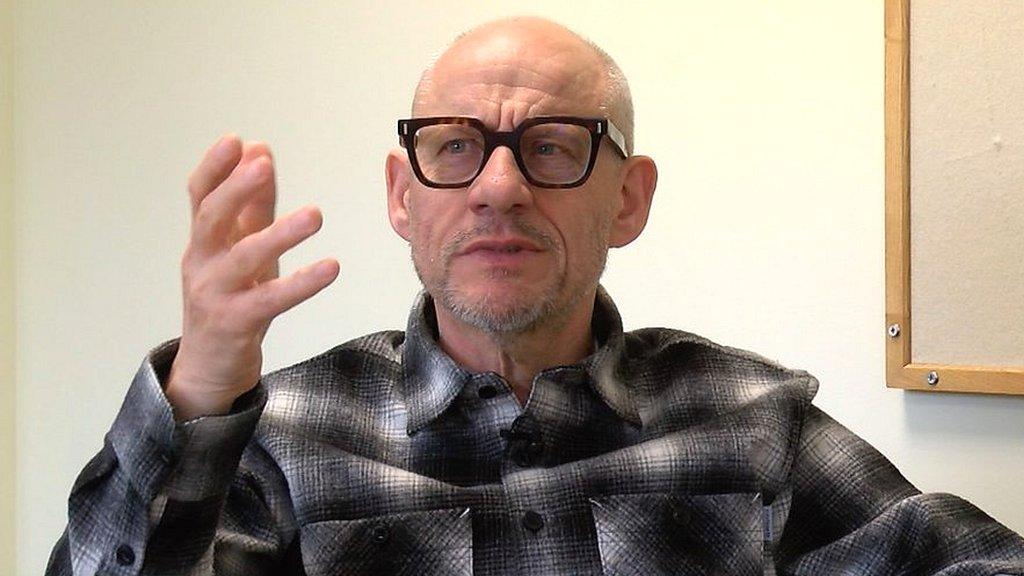Woman calls for more awareness of communication needs
- Published
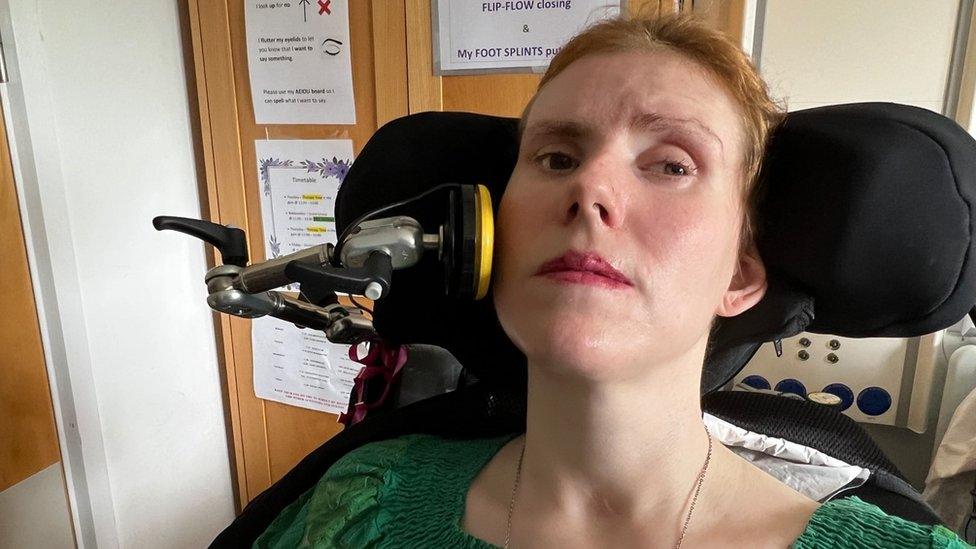
Bex Kemp wants more healthcare providers to be aware of how to use assistive technologies
A woman left paralysed and unable to speak after a stroke wants more done to help people like her have a voice.
Bex Kemp from Dursley, Gloucestershire, uses a spell board to communicate but has had issues with healthcare providers who do not know how it works.
The 36-year-old said her life is made more difficult when she cannot use the board to make herself understood.
"Not being able to join a conversation is so hard especially if you're like me and used to be chatterbox," she said.
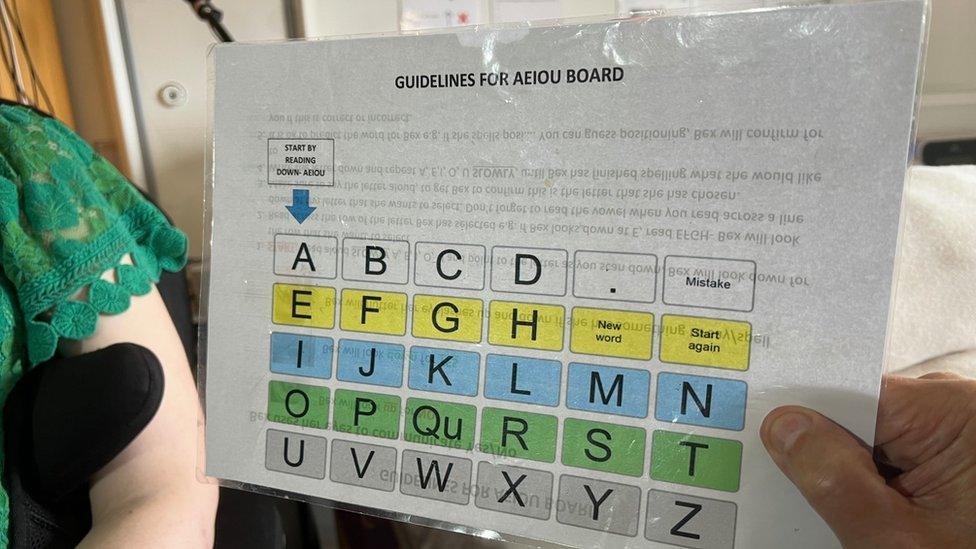
Ms Kemp uses her eyes and a spell board to communicate
The spell board works by Bex fluttering her eyelids when she wants to say something.
Someone then reads out the letters A, E, I, O and U to find out the row to read from. Bex will then look down to indicate yes when the reader has reached the correct row.
The remainder of the letters are then read out until she indicates yes. The process is repeated until the word or sentence is formed.
Ms Kemp said that without access to the board she cannot even make simple requests.
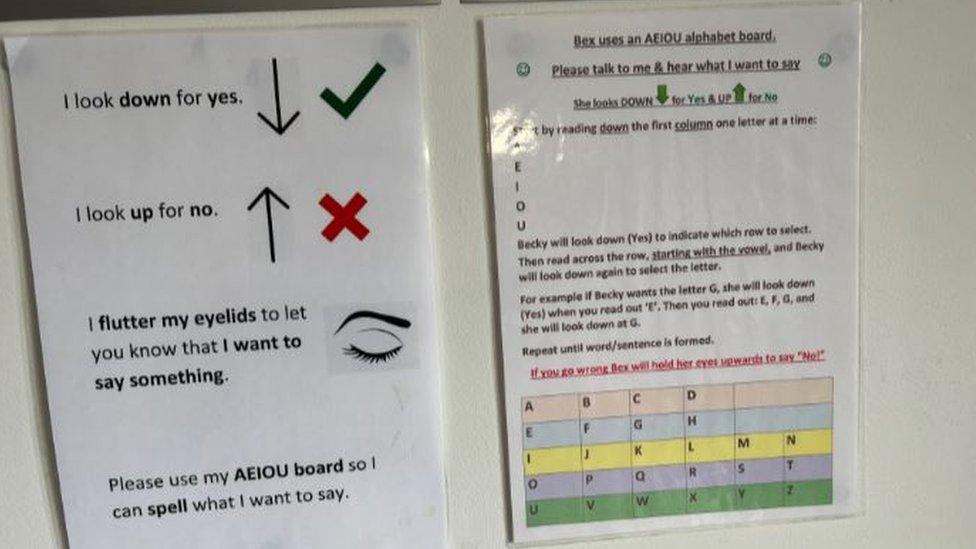
Bex informs people she wants to use the spell board by fluttering her eyelids
"I wouldn't be able to tell staff if something out of the ordinary hurt or was uncomfortable that I just can't' say yes or no to."
Dysphasia, also known as Aphasia, is a condition that affects the brain and leads to problems using language correctly.
Ms Kemp was diagnosed with the condition after she had a stroke in 2019 which left her paralysed from the neck down.
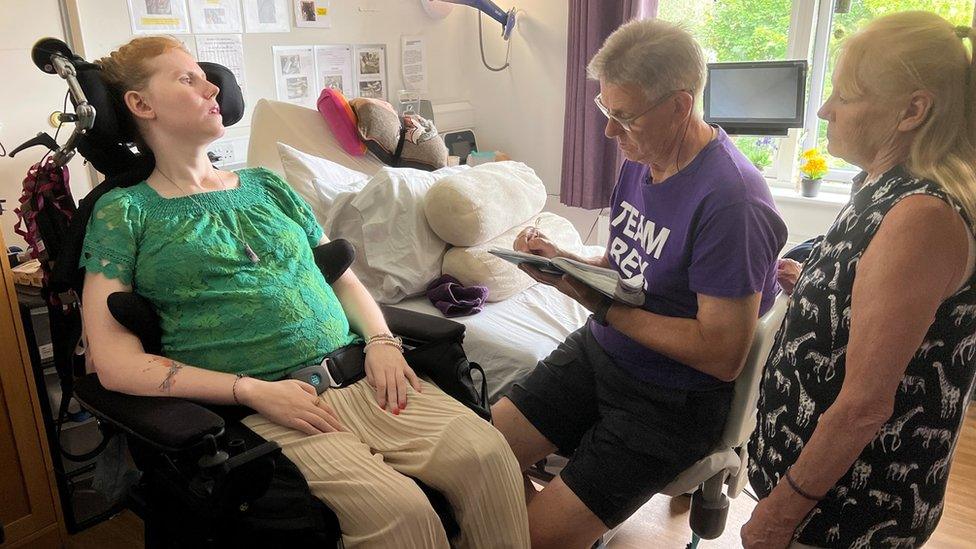
Her father said her spell board has changed his daughter's life
Ms Kemp does use some assistive technology but prefers the spelling board due to its ease of use.
Her father Jon Kemp said it was sometimes difficult for her because she has "as much to say as anyone else".
"Becky looks down to say yes or looks up to say no and if she doesn't know her answer or doesn't want you to she won't move her eyes at all," he said.
"If she wants to communicate using her board she moves her eyes up and down. It's so simple."
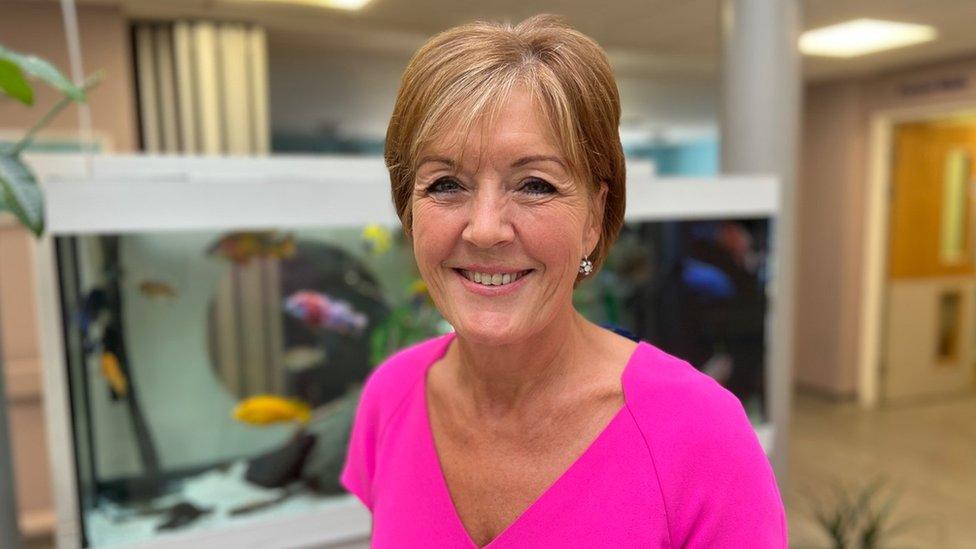
Susan Field said it is important for patients to have a voice
Susan Field, director at The Dean where Ms Kemp lives, said it was vital for individuals to have a voice and that technology has a role "but there are challenges".
"We have eye gaze, we have controls in terms of pictures, iPads, so many different forums," she said.
"Part of the other challenge is our staff keeping up to date with all of these other technologies which is really good news for our patients and residents.
"But actually technology is moving so fast and it's just keeping up with it that's the challenge."

Follow BBC West on Facebook, external, Twitter, external and Instagram, external. Send your story ideas to: bristol@bbc.co.uk
Related topics
- Published26 May 2023
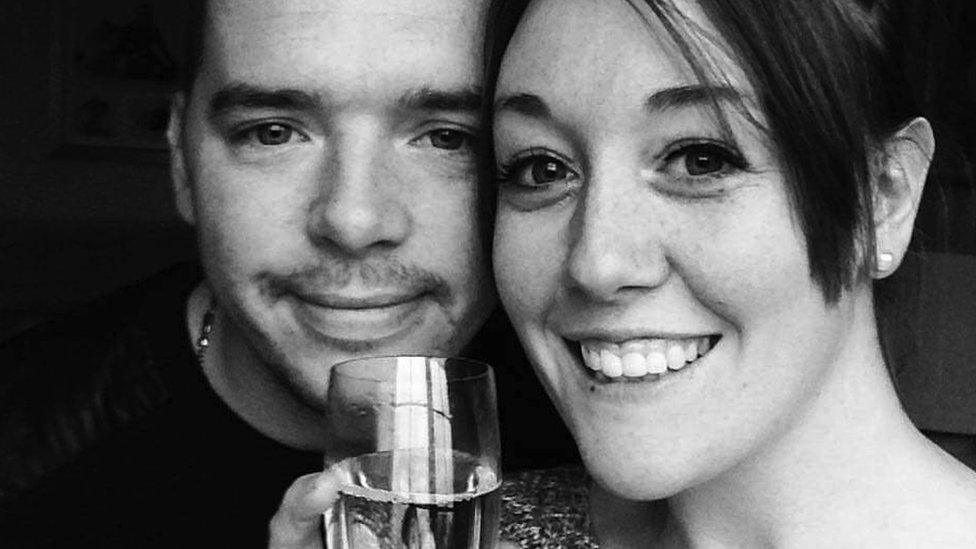
- Published17 February 2023
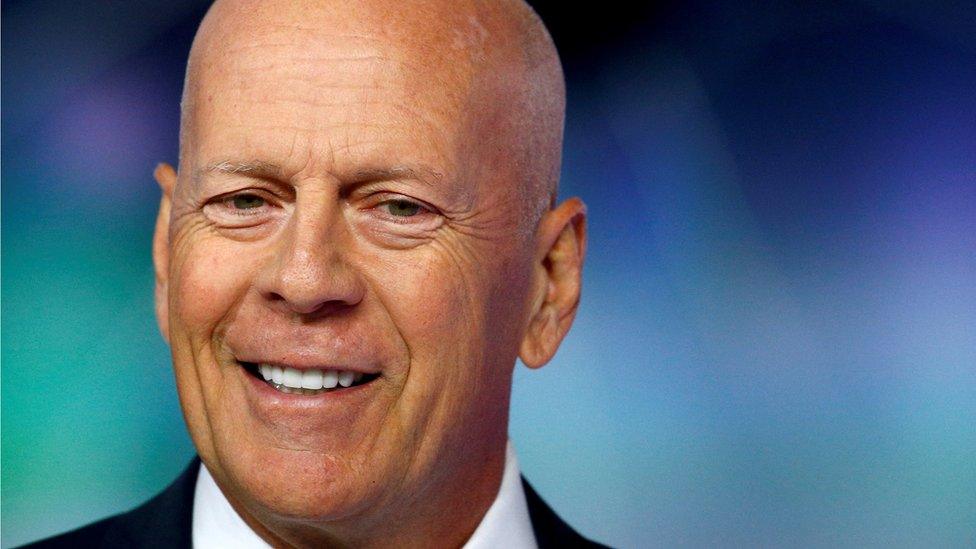
- Published30 April 2022
